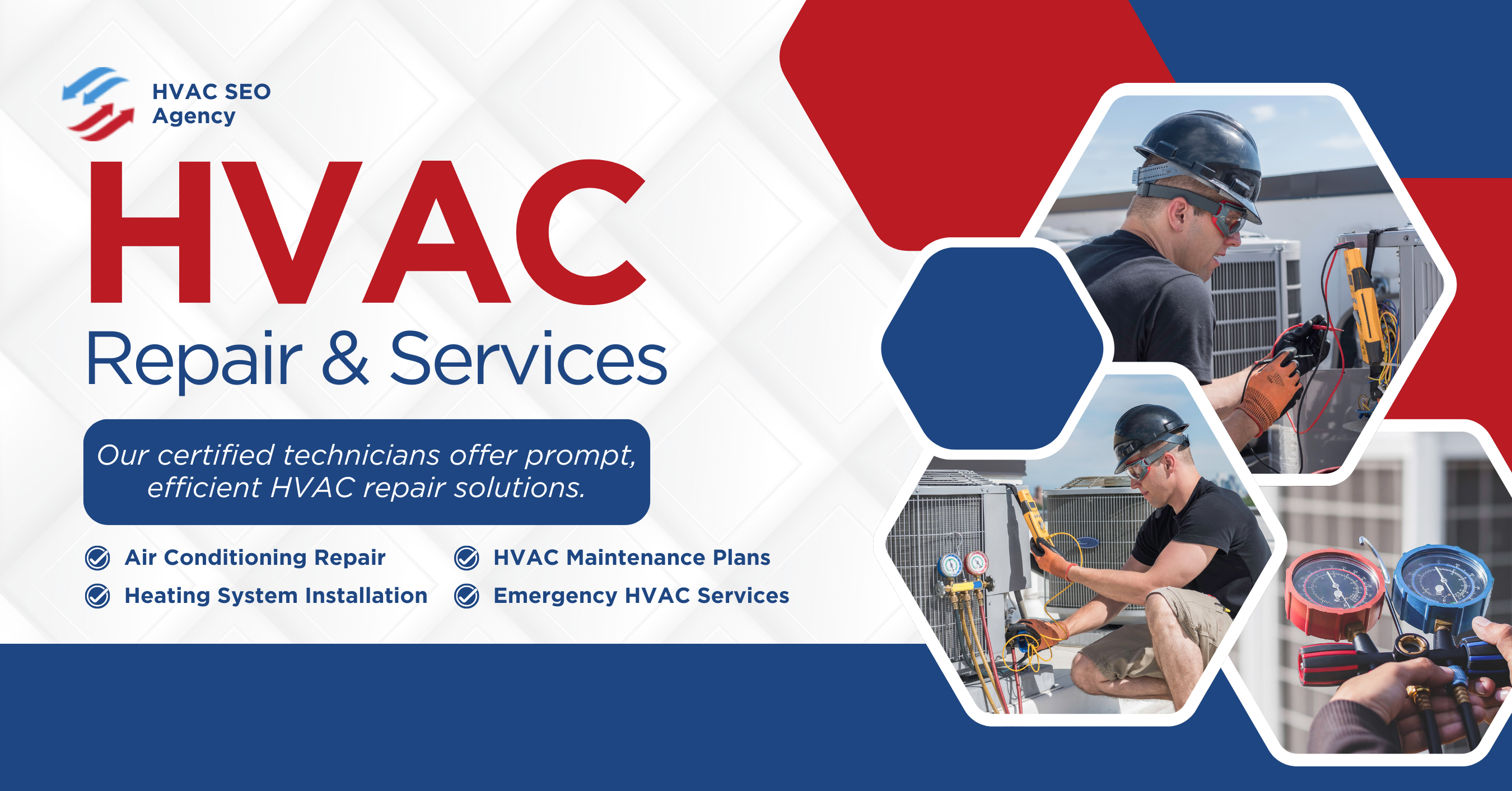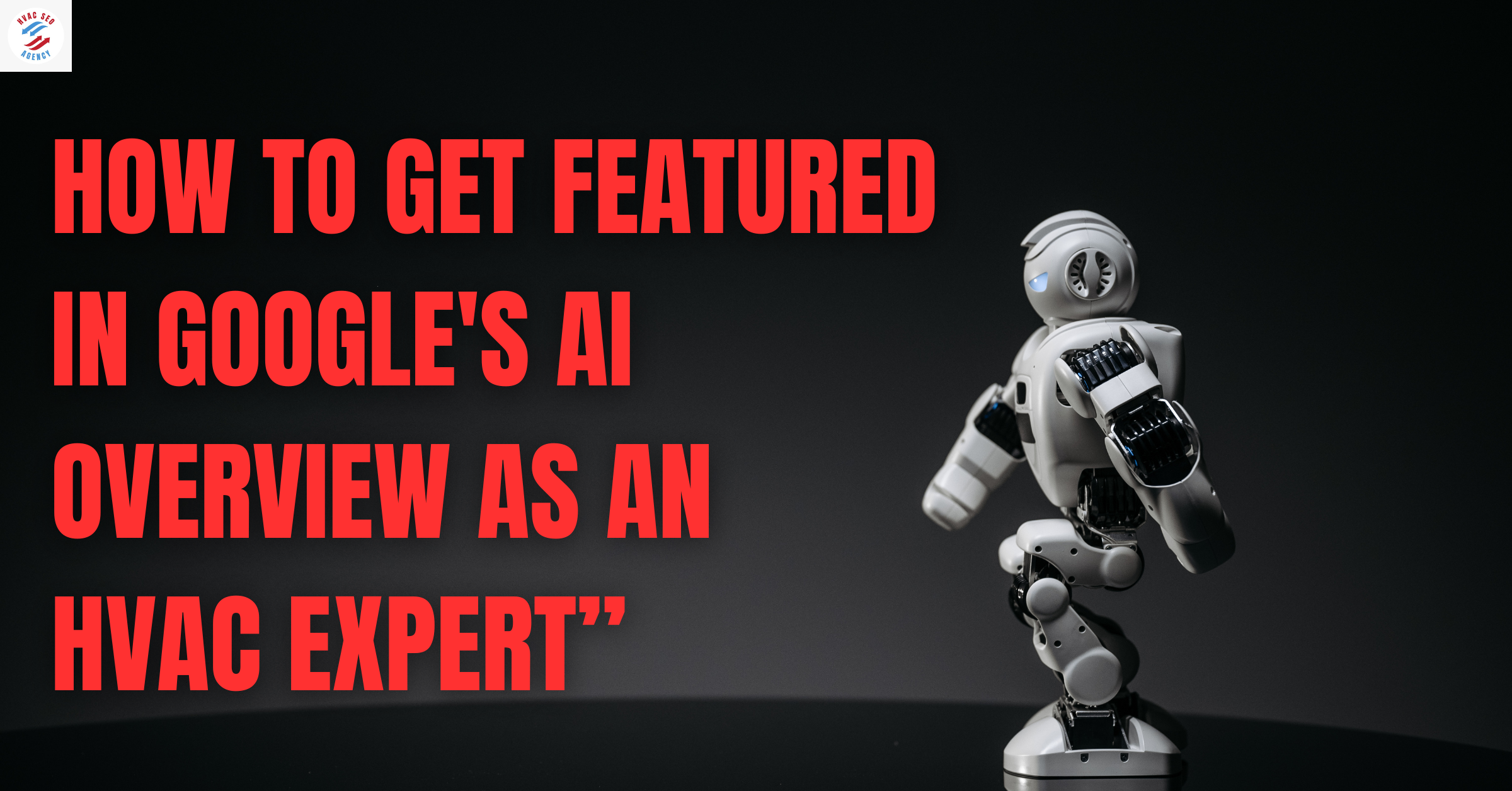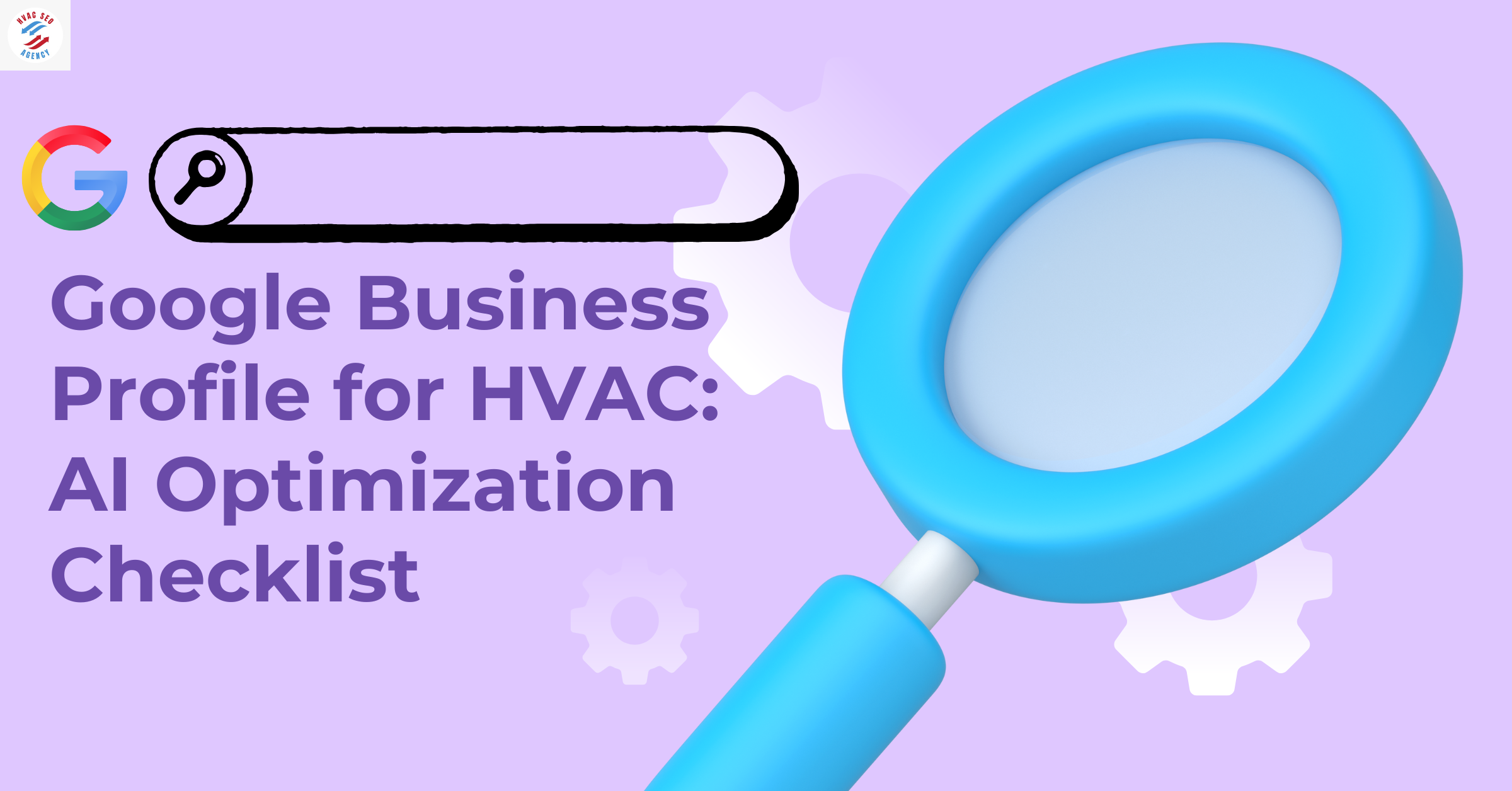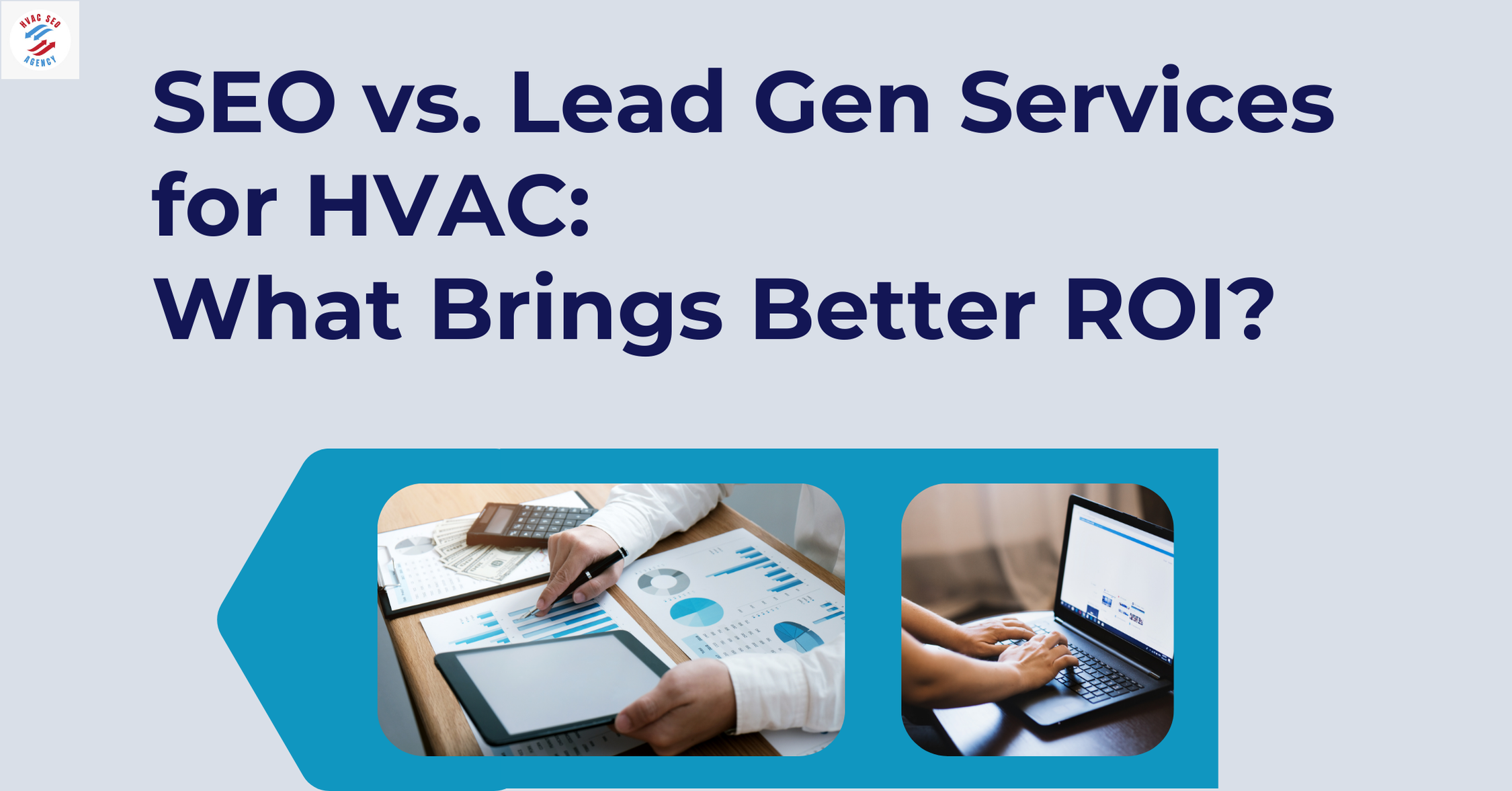HVAC Salary Guide 2025: Technician, Installer, and Business Owner Pay Trend

I. Introduction to HVAC Salaries
1. Why HVAC Salaries Matter in 2025
The HVAC industry is experiencing record growth in 2025, driven by high demand for energy-efficient systems, labor shortages, and an increasing focus on sustainability. HVAC professionals are seeing higher salaries and greater job stability due to government incentives for energy-efficient buildings, increased construction, and aging HVAC systems needing replacement.
As more customers search for "HVAC companies near me", businesses must invest in SEO-optimized websites to stay ahead. A specialized HVAC SEO Agency can help HVAC contractors rank higher on search engines, increase organic traffic, and generate quality leads. Studies show that 60% of HVAC businesses gain most of their leads from organic search, and local SEO-optimized HVAC websites receive 70% more clicks than non-optimized competitors.
Key Industry Statistics (2025 Data)
The U.S. Bureau of Labor Statistics (BLS) projects a 13% increase in HVAC jobs from 2023 to 2031, significantly outpacing many other trades.
The average HVAC salary has increased by 22% over the last decade, making HVAC one of the most lucrative skilled trades.
The top 10% of HVAC technicians earn over $95,000 annually, with specialized technicians exceeding $100,000 per year.
Graph 1: Growth of HVAC Industry & Salary Trends (2015–2025)
(Graph illustrating the increasing demand for HVAC professionals and rising salaries.)
2. How Much Do HVAC Technicians Make in 2025?
HVAC salaries in 2025 vary based on experience, certification, specialization, and geographic location. With the high demand for skilled technicians, salaries have seen a steady increase, especially for those with advanced training in energy-efficient and smart HVAC systems.
Technicians specializing in commercial HVAC installations, refrigeration, or sustainable energy solutions tend to earn higher wages. Additionally, HVAC professionals who emphasize the Importance of Annual Maintenance can generate extra income by offering preventative maintenance services, which help homeowners and businesses prolong system lifespan, improve energy efficiency, and reduce costly repairs.
Average HVAC Salary in the U.S. (2025 Data)
Entry-Level (0-2 years): $42,000 – $52,000 per year.
Mid-Level (3-7 years): $58,000 – $75,000 per year.
Senior-Level (8+ years): $78,000 – $95,000 per year.
Table 1: HVAC Technician Salary by Experience Level (2025 Data)
(Source: Bureau of Labor Statistics, 2025)
3. HVAC Salaries vs. Other Skilled Trades in 2025
HVAC professionals continue to out-earn many other skilled trade workers. Compared to electricians, plumbers, and construction workers, HVAC technicians earn more on average and have better long-term job security.
Table 2: HVAC Salary vs. Other Skilled Trades (2025 Data)
(Source: U.S. Bureau of Labor Statistics, 2025)
Graph2: Comparison of HVAC Salary vs. Other Skilled Trades in 2025
4. Factors That Affect HVAC Salaries in 2025
1. Experience Level
Entry-level technicians earn $42,000 - $52,000 per year.
Senior technicians with specialized training earn over $95,000 per year.
2. Location & Cost of Living
The highest-paying states for HVAC technicians in 2025 include California, Massachusetts, and Washington, where salaries exceed $80,000 per year.
Lower-paying states tend to have lower costs of living, with salaries averaging $52,000 – $62,000 per year.
Table 3: Highest-Paying States for HVAC Jobs (2025 Data)
(Source: Bureau of Labor Statistics, 2025)
3. Certifications & Education
NATE-certified HVAC technicians earn 15-25% more than non-certified technicians.
Union workers earn $5,000 - $10,000 more annually than non-union workers.
Table 4: HVAC Salary Differences Based on Certification & Union Membership (2025 Data)
(Source: HVACR Workforce Development Foundation, 2025)
Graph 3: How Certification Affects HVAC Salaries in 2025
5. The Future of HVAC Salaries: Growth Projections Through 2030
The HVAC industry is expected to grow by 13% by 2030, with salaries rising accordingly.
Energy-efficient HVAC systems and smart building technologies are creating higher-paying HVAC jobs.
More businesses are shifting to sustainable HVAC solutions, requiring technicians with specialized training in green energy.
Table 5: Projected Salary Growth in the HVAC Industry (2025-2030)
(Source: U.S. Department of Energy, 2025)
6. Conclusion of Section I: Understanding HVAC Salary Trends in 2025
HVAC salaries are rising in 2025 due to increased demand, labor shortages, and new energy regulations.
Certifications, location, and experience level significantly impact salary potential.
Green energy solutions and smart HVAC technology are shaping the future of the industry, increasing job opportunities and pay scales.
By 2030, average HVAC salaries are expected to rise by an additional 20%, making it one of the most lucrative skilled trades.
II. HVAC Technician Salary Breakdown – Entry-Level, Mid-Level, and Senior-Level Pay Trends in 2025
1. HVAC Technician Salaries
The HVAC technician salary structure varies based on experience, skill level, and industry specialization. Entry-level technicians typically start at lower wages, but salaries increase significantly with years of experience, advanced certifications, and specialized skills.
One major factor influencing earning potential is the ability to offer additional services, such as energy-efficient upgrades, smart HVAC installations, and maintenance plans. Technicians who understand HVAC Financing can also increase their value by helping customers access affordable payment options for system replacements or upgrades. This not only benefits homeowners but also boosts sales for HVAC businesses, making financing a key factor in driving industry growth in 2025.
Key Industry Statistics (2025 Data):
Entry-level HVAC technicians earn between $42,000 - $52,000 per year. (Source: Bureau of Labor Statistics, 2025)
Mid-level HVAC technicians can earn $58,000 - $75,000 per year.
Senior HVAC technicians make $78,000 - $95,000 per year, with the top 10% exceeding $100,000.
Graph 1: HVAC Salary Growth by Experience Level (2025 Data)
(Graph showing salary progression from entry-level to senior technicians.)
2. Entry-Level HVAC Technician Salary in 2025
Who is Considered Entry-Level?
An entry-level HVAC technician has 0-2 years of experience and may still be completing certifications or apprenticeships.
Duties of Entry-Level HVAC Technicians:
Assisting with HVAC installations.
Learning maintenance and troubleshooting skills.
Handling basic repairs under supervision.
Average Entry-Level HVAC Salary in 2025:
Annual Salary: $42,000 - $52,000.
Hourly Wage: $19 - $25 per hour.
Table 1: Entry-Level HVAC Technician Salary by U.S. State (2025 Data)
(Source: Bureau of Labor Statistics, 2025)
Factors Affecting Entry-Level HVAC Salaries
Apprenticeships vs. Full-Time Positions – Technicians completing apprenticeships may start at lower wages.
Union vs. Non-Union – Union entry-level technicians earn 10-15% more.
State & City Cost of Living – Salaries are higher in major metro areas.
3. Mid-Level HVAC Technician Salary in 2025
Who is Considered Mid-Level?
A mid-level HVAC technician has 3-7 years of experience and specialized training in HVAC installation, repair, or system optimization.
Duties of Mid-Level HVAC Technicians:
Handling commercial HVAC maintenance.
Leading small installation projects.
Managing refrigerant handling and energy-efficient upgrades.
Average Mid-Level HVAC Salary in 2025:
Annual Salary: $58,000 - $75,000.
Hourly Wage: $26 - $34 per hour.
Table 2: Mid-Level HVAC Technician Salary by Specialization (2025 Data)
(Source: HVACR Industry Salary Report, 2025)
Graph 2: HVAC Salary Comparison by Specialization (2025 Data)
How to Increase Mid-Level HVAC Salaries
Get NATE Certification – NATE-certified technicians earn $5,000 - $10,000 more per year.
Specialize in Energy-Efficient HVAC Systems – Higher demand for LEED and smart HVAC tech specialists.
Move into Commercial HVAC – Commercial hvac service pays 15-20% more than residential HVAC jobs.
4. Senior-Level HVAC Technician Salary in 2025
Who is Considered Senior-Level?
A senior HVAC technician has 8+ years of experience and is often responsible for project management, commercial system troubleshooting, and leading large HVAC teams.
Duties of Senior HVAC Technicians:
Managing commercial hvac installation projects.
Overseeing large-scale HVAC repairs.
Training entry-level and mid-level technicians.
Average Senior HVAC Salary in 2025:
Annual Salary: $78,000 - $95,000.
Hourly Wage: $36 - $48 per hour.
Table 3: Senior HVAC Technician Salary by Industry (2025 Data)
(Source: Bureau of Labor Statistics, 2025)
Graph 3: Senior HVAC Technician Salary Growth Over Time (2025 Data)
How to Increase Senior-Level HVAC Salaries
Become an HVAC Project Manager – HVAC project managers earn $90,000 - $120,000 per year.
Start an HVAC Business – HVAC business owners can make over $150,000 annually.
Specialize in Data Center HVAC & Industrial HVAC – These fields offer higher salary potential.
5. Conclusion of Section II: HVAC Technician Salary Progression in 2025
Entry-level HVAC technicians start at $42,000 - $52,000 per year.
Mid-level technicians can earn up to $75,000 per year.
Senior HVAC technicians make $78,000 - $95,000, with top earners exceeding $100,000.
Commercial HVAC repair, installation, and project management roles pay higher salaries.
Certifications, specializations, and industry demand will continue to drive higher HVAC salaries through 2030.
III. HVAC Salaries by Specialization – HVAC Installer, Journeyman, and Business Owner Salaries in 2025
1. How Specialization Affects HVAC Salaries
HVAC professionals who specialize in installation, maintenance, commercial HVAC systems, or business ownership tend to earn higher salaries compared to general Affordable HVAC SEO Agency. Each role requires different skill sets, certifications, and levels of experience, which impact annual earnings.
Key Statistics on HVAC Specializations (2025 Data):
HVAC installers earn $50,000 - $70,000 per year, with top earners making over $85,000. (Source: Bureau of Labor Statistics, 2025)
HVAC journeyman with a license earn 15-20% more than entry-level technicians. (Source: HVACR Workforce Development Report, 2025)
HVAC business owners can earn over $150,000 per year, depending on company size and contracts.
Graph 1: HVAC Salaries by Specialization in 2025
(Graph comparing salaries for different HVAC roles.)
2. HVAC Installer Salary in 2025
What Does an HVAC Installer Do?
HVAC installers are responsible for setting up, assembling, and testing HVAC systems in residential and commercial buildings. They work closely with engineers to ensure proper ductwork, refrigerant handling, and compliance with local building codes.
Table 1: HVAC Installer Salary by Experience Level (2025 Data)
(Source: Bureau of Labor Statistics, 2025)
Factors Affecting HVAC Installer Salaries
Union vs. Non-Union Jobs – Unionized HVAC installers earn 15-20% more.
Location & Demand – High-demand states offer higher wages.
Certifications – NATE-certified installers earn $5,000 - $10,000 more annually.
Table 2: Highest-Paying States for HVAC Installers (2025 Data)
(Source: Bureau of Labor Statistics, 2025)
3. HVAC Journeyman Salary in 2025
What is an HVAC Journeyman?
An HVAC journeyman is a technician who has completed an apprenticeship program and holds a state-issued HVAC license. Journeymen are qualified to install, repair, and maintain HVAC systems without direct supervision.
Average HVAC Journeyman Salary in 2025:
Annual Salary: $65,000 - $85,000.
Top 10% Earners: Over $100,000 per year.
Hourly Wage: $30 - $45 per hour.
Table 3: HVAC Journeyman Salary by Certification & Union Status (2025 Data)
(Source: HVACR Workforce Development Report, 2025)
Graph 2: Salary Comparison of Certified vs. Non-Certified HVAC Journeymen
How to Increase Journeyman Salary
Get NATE Certification – Certified journeymen earn 15% more.
Specialize in Commercial HVAC – Commercial hvac maintenance and installation jobs pay more.
Union Membership – Unionized HVAC journeymen have higher hourly wages and better benefits.
4. HVAC Business Owner Salary in 2025
How Much Do HVAC Business Owners Make?
Self-employed HVAC business owners can significantly out-earn salaried technicians. Income varies based on number of employees, contracts, and location.
Average HVAC Business Owner Salary in 2025:
Small HVAC Business (1-3 employees): $80,000 - $120,000 per year.
Medium HVAC Business (4-10 employees): $120,000 - $200,000 per year.
Large HVAC Company (10+ employees): $200,000+ per year.
Table 4: HVAC Business Owner Salary by Business Size (2025 Data)
(Source: HVAC Business Owners Association, 2025)
Graph 3: HVAC Business Owner Profit vs. Revenue (2025 Data)
How HVAC Business Owners Can Increase Profits
Offer Commercial HVAC Services – Commercial hvac installation projects bring in higher contracts.
Invest in SEO & Digital Marketing – Businesses using HVAC SEO Agencies generate 40% more leads.
Hire Skilled Technicians – Higher-quality work leads to repeat customers and referrals.
5. Conclusion of Section III: HVAC Salary Growth by Specialization
HVAC installers make $50,000 - $70,000 per year, with specialization leading to higher pay.
HVAC journeyman earn $65,000 - $85,000, with certification and union membership boosting salaries.
HVAC business owners can earn $150,000+ per year, depending on the size of their company.
Specializing in commercial HVAC maintenance, installation, and energy-efficient HVAC systems leads to higher earnings.
IV. HVAC Salaries by Location – Highest Paying States and Cities in 2025
Why Location Affects HVAC Salaries
The average HVAC salary varies widely across the U.S. due to regional demand, cost of living, and state-specific HVAC regulations. States with higher energy efficiency standards and extreme weather conditions tend to pay higher wages for skilled HVAC professionals.
Key HVAC Salary Trends by Location (2025 Data):
Technicians in high-demand states earn up to 25% more than the national average.
Urban areas offer higher salaries due to increased cost of living and HVAC service demand.
Unionized regions pay HVAC journeyman salary rates 15-20% higher than non-union areas.
Graph 1: HVAC Salaries by U.S. Region (2025 Data)
(Graph showing salary trends in the Northeast, Midwest, South, and West.)
2. Highest-Paying States for HVAC Technicians in 2025
Table 1: Highest-Paying States for HVAC Technicians (2025 Data)
(Source: Bureau of Labor Statistics, 2025)
3. Lowest-Paying States for HVAC Technicians in 2025
Table 2: Lowest-Paying States for HVAC Jobs (2025 Data)
Why These States Pay Less:
Lower cost of living results in lower salary scales.
Fewer extreme climate conditions reduce demand for HVAC services.
4. Best Cities for HVAC Salaries in 2025
Table 3: Highest-Paying Cities for HVAC Technicians (2025 Data)
Graph 2: Highest-Paying Cities for HVAC Jobs (2025 Data)
Why These Cities Pay More
Higher living costs require higher wages.
Increased demand for energy-efficient HVAC systems in commercial buildings.
Severe climate conditions require more skilled HVAC technicians.
5. Cost of Living Adjustments for HVAC Salaries
table 4: Adjusted HVAC Salaries Based on Cost of Living (2025 Data)
Graph 3: Cost of Living Impact on HVAC Technician Salaries (2025 Data)
HVAC technicians in states with high costs of living may earn more, but real purchasing power can be lower.
In states like Texas and Florida, adjusted salaries provide better affordability.
6. Union vs. Non-Union HVAC Salaries by Location
Table 5: Union vs. Non-Union HVAC Salaries in 2025
7. Commercial vs. Residential HVAC Salary Differences by Location
Table 6: Commercial vs. Residential HVAC Salaries in Top U.S. Cities (2025 Data
Graph 4: Commercial vs. Residential HVAC Salary Comparison by Location (2025 Data)
Commercial HVAC technicians earn $10,000 - $20,000 more per year than residential HVAC technicians.
In large cities, commercial HVAC companies pay higher wages due to complexity and project scale.
8. Conclusion of Section IV: Location-Based Salary Insights for HVAC Technicians
California, Texas, and Florida remain the highest-paying states for HVAC professionals.
Union HVAC technicians earn 15-20% more than non-union workers.
Commercial HVAC jobs pay significantly higher salaries than residential HVAC jobs, especially in major metropolitan areas.
Cost of living adjustments impact real wages, making some states more attractive for HVAC careers.
V. Factors That Influence HVAC Salaries – Education, Certifications, and Specializations in 2025
1. What Determines an HVAC Technician's Salary?
HVAC salaries are not just based on years of experience. Education, certifications, specialization, union membership, and job location all significantly impact how much an HVAC professional earns.
Key Factors Affecting HVAC Salaries in 2025:
Certified technicians earn 15-25% more than non-certified professionals. (Source: Bureau of Labor Statistics, 2025)
Specialized HVAC jobs (commercial HVAC, automation, green energy systems) pay 20-30% more than general HVAC positions.
Union HVAC technicians earn 15-20% more due to negotiated wages. (Source: HVACR Workforce Development Report, 2025)
Graph 1: Salary Growth Based on Certifications & Specializations (2025 Data)
(Graph comparing salary increases for certified vs. non-certified HVAC technicians.)
2. How Education Impacts HVAC Technician Salaries
Table 1: HVAC Technician Salary by Education Level (2025 Data)
(Source: Bureau of Labor Statistics, 2025)
3. The Impact of Certifications on HVAC Salaries
Certifications That Boost HVAC Salaries:
EPA 608 Certification – Required for handling refrigerants.
NATE (North American Technician Excellence) Certification – Certified technicians earn $5,000 - $10,000 more per year.
HVAC Excellence Certification – Increases hiring opportunities for advanced HVAC positions.
Table 2: Salary Increases from HVAC Certifications (2025 Data)
(Source: HVAC Certification Report, 2025)
Graph 2: Salary Growth for HVAC Technicians with Certifications (2025 Data.
Certified HVAC technicians earn between 10-25% more than non-certified technicians.
Employers prefer certified HVAC professionals because they require less training and reduce liability risks.
4. Specialization and Its Impact on HVAC Salaries
1. Commercial vs. Residential HVAC Salary Differences
Commercial HVAC technicians earn $10,000 - $20,000 more per year than residential HVAC technicians due to the complexity of the work.
Table 3: Commercial vs. Residential HVAC Technician Salaries (2025 Data)
(Source: Bureau of Labor Statistics, 2025)
2. HVAC Journeyman Salary vs. Apprentice Salary
HVAC journeymen earn 25-30% more than apprentices, as they are fully licensed to work independently.
Table 4: HVAC Journeyman vs. Apprentice Salaries (2025 Data)
(Source: HVACR Workforce Development Report, 2025)
3. HVAC Business Owner Salary in 2025
Table 5: HVAC Business Owner Salary by Company Size (2025 Data)
(Source: HVAC Business Owners Association, 2025)
Graph 3: HVAC Business Owner Profit vs. Revenue (2025 Data)
Self-employed HVAC business owners earn significantly more than salaried technicians.
Profitability depends on service contracts, commercial clients, and marketing strategies.
5. The Impact of Union Membership on HVAC Salaries
Table 6: Union vs. Non-Union HVAC Salaries in 2025
(Source: Bureau of Labor Statistics, 2025)
6. Conclusion of Section V: Key Factors Impacting HVAC Salaries in 2025
Education, certifications, and union membership all increase HVAC salaries.
Commercial HVAC technicians and journeymen earn significantly more than apprentices and residential HVAC technicians.
HVAC business owners can make over $150,000 annually, depending on business size.
Unionized HVAC professionals earn 15-20% more than non-union workers.
By specializing in green energy HVAC solutions, automation, or commercial HVAC, technicians can significantly boost their earnings.
VI. Future HVAC Salary Trends – Projections for 2030 & Beyond
1. The Future of HVAC Salaries
The HVAC industry is expected to experience significant salary growth through 2030, driven by technological advancements, energy efficiency regulations, and rising demand for skilled labor. As businesses and homeowners continue to adopt smart HVAC systems, green energy solutions, and automation, the need for highly trained HVAC technicians, installers, and business owners will increase.
Key Industry Predictions (2025-2030 Data):
HVAC salaries are projected to rise by 20% between 2025 and 2030 due to increased demand. (Source: Bureau of Labor Statistics, 2025)
HVAC business owners will see the highest income growth, as more businesses invest in commercial HVAC upgrades.
Technicians specializing in smart HVAC and energy-efficient systems will earn 15-30% more than traditional HVAC workers.
Graph 1: Projected Growth in HVAC Technician Salaries (2025-2030) (Graph showing forecasted salary increases for HVAC professionals.)
2. Projected Salary Growth for HVAC Technicians (2025-2030)
Table 1: Projected HVAC Technician Salaries (2025-2030 Data)
(Source: Bureau of Labor Statistics, 2025)
3. Impact of Green Energy & Smart HVAC on Future Salaries
Why Green HVAC Technology Increases Salaries:
50% of new commercial buildings by 2030 will require energy-efficient HVAC systems. (Source: U.S. Department of Energy, 2025)
HVAC technicians with green energy certifications will earn 20-30% more than non-certified professionals.
Demand for solar-powered HVAC and geothermal heating systems will create higher-paying HVAC jobs.
Table 2: Salary Growth for Technicians Specializing in Green HVAC (2025-2030 Data)
(Source: U.S. Green Building Council, 2025)
Graph 2: Salary Growth for Green HVAC & Smart HVAC Technicians (2025-2030)
Technicians trained in smart HVAC systems will earn 25% more than traditional HVAC technicians.
Green HVAC specialists will see the highest salary increases due to energy efficiency mandates.
4. Automation & AI: Will It Affect HVAC Salaries?
There is growing concern that automation and artificial intelligence (AI) will replace HVAC jobs, but industry data suggests that automation will enhance HVAC technician salaries rather than eliminate jobs.
How AI & Automation Will Impact HVAC Salaries:
AI-driven HVAC diagnostics will increase demand for highly skilled technicians trained in smart system troubleshooting.
Robotics will assist in HVAC maintenance, but human oversight will remain essential.
HVAC professionals with expertise in automated systems will be able to charge premium service fees.
Table 3: Salary Differences Between Traditional & AI-Integrated HVAC Jobs (2025-2030)
(Source: HVACR Industry Report, 2025)
5. Projected Salaries for HVAC Business Owners in 2030
Table 4: HVAC Business Owner Salary Growth Projection (2025-2030 Data)
(Source: HVAC Business Owners Association, 2025)
Graph 3: Growth in HVAC Business Owner Salaries (2025-2030)
Self-employed HVAC contractors will continue to see higher earnings as commercial HVAC demand grows.
Expanding into green energy HVAC solutions will further increase business profitability.
6. Future HVAC Job Market Trends & Predictions
Key Trends Shaping HVAC Salaries Through 2030:
AI-based HVAC monitoring and automation will increase technician demand.
Smart HVAC controls and IoT integration will create higher-paying specialized positions.
Green energy requirements will boost salaries for HVAC professionals trained in solar HVAC and geothermal heating.
Table 5: Future HVAC Job Market Growth by Sector (2025-2030 Data)
(Source: U.S. Bureau of Labor Statistics, 2025)
7. Conclusion of Section VI: What to Expect for HVAC Salaries Through 2030
HVAC salaries are expected to increase by 20% by 2030, making HVAC one of the highest-paying skilled trades.
Green energy solutions, smart HVAC technology, and AI-driven diagnostics will drive salary growth.
Self-employed HVAC business owners will see increasing profitability as HVAC demand rises.
Technicians trained in commercial HVAC, automation, and green energy solutions will have the highest earning potential.
VII. How an HVAC SEO Agency Can Help Contractors Attract High-Paying Jobs & Clients
1. The Importance of Digital Marketing for HVAC Businesses
In 2025, the HVAC industry is more competitive than ever, with contractors, technicians, and business owners competing for high-paying jobs and lucrative service contracts. Without a strong digital presence, HVAC companies risk losing potential clients to competitors who dominate Google search results.
Key HVAC Marketing Statistics (2025 Data):
75% of customers searching for “HVAC companies near me” hire a contractor within 24 hours. (Source: Google Industry Insights, 2025)
60% of HVAC businesses generate most of their leads from organic search traffic. (Source: HubSpot, 2025)
Local SEO-optimized HVAC websites receive 70% more clicks than non-optimized competitors. (Source: BrightLocal, 2025)
Graph 1: Growth in Online HVAC Service Inquiries (2020-2025) (Graph showing the increase in online searches for HVAC services.)
2. Local SEO: Ranking for High-Intent HVAC Job Searches
Why Local SEO Matters for HVAC Companies
Google prioritizes local search results, meaning contractors who optimize for "HVAC technician salary near me", "best HVAC companies hiring", and "HVAC business owner salary" get more leads than those who rely on word-of-mouth alone.
Local SEO Strategies for HVAC Businesses:
Optimize Google Business Profile (GBP) – Improves visibility in "HVAC companies near me" searches.
Use location-based keywords – Helps rank for "HVAC installer salary in [City]".
Get more online reviews – Businesses with 5+ positive reviews rank higher in search results.
Table 1: Local Search Ranking Factors for HVAC Businesses (2025 Data)
(Source: Moz HVAC SEO Report, 2025)
3. HVAC Contractor Website Optimization for Lead Generation
1. High-Converting HVAC Service Pages
Must-have elements for HVAC business websites:
Fast-loading pages – 53% of users leave if a page takes more than 3 seconds to load. (Source: Google PageSpeed Report, 2025)
Mobile optimization – 60% of HVAC searches come from mobile devices. (Source: SEMrush, 2025)
Clear CTAs ("Request a Free Quote," "Call Now for Repairs") to capture leads.
Table 2: Conversion Rates of Optimized vs. Non-Optimized HVAC Websites (2025 Data)
(Source: SEMrush HVAC Industry Report, 2025)
Graph 2: How Website Optimization Increases HVAC Leads
4. Blogging & Content Marketing: Establishing Authority in the HVAC Industry
Why Blogging Matters for HVAC SEO
Websites with blogs generate 55% more traffic than those without. (Source: HubSpot, 2025)
Educational content attracts high-intent HVAC job seekers and customers.
Table 3: Most Searched Blog Topics for HVAC Businesses (2025 Data)
5. Google Ads & PPC for HVAC Lead Generation
Best Paid Advertising Strategies for HVAC Businesses
Google Search Ads – Targets high-intent searches like "HVAC business owner salary in Texas".
Retargeting Ads – Brings back visitors who didn’t convert on the first visit.
Google Local Services Ads (LSAs) – Top-of-page placement for trusted HVAC providers.
Table 4: Cost-Per-Click (CPC) for HVAC PPC Keywords (2025 Data)
(Source: Google Ads Keyword Planner, 2025)
Graph 3: ROI from Google Ads for HVAC Lead Generation
6. SEO vs. Paid Ads: Which is Better for HVAC Businesses?
Table 5: SEO vs. PPC for HVAC Lead Generation (2025 Data)
(Source: HVAC Digital Marketing Report, 2025)
7. Online Reviews & Reputation Management for HVAC Businesses
Key Stats on Online Reviews for HVAC Contractors (2025 Data):
87% of customers read online reviews before choosing an HVAC company.
Businesses with 5+ positive reviews receive 35% more leads.
Table 6: Impact of Online Reviews on HVAC Customer Acquisition
(Source: BrightLocal Consumer Review Report, 2025)
8. Conclusion of Section VII: Why HVAC SEO & Digital Marketing Are Critical for Business Growth
SEO increases HVAC leads by 50-70% compared to non-optimized businesses.
Local SEO strategies ensure top rankings for "HVAC technician salary near me" and related searches.
Google Ads provide immediate leads, while content marketing secures long-term growth.
Managing online reviews boosts reputation and lead generation
VIII. Final Thoughts & Actionable Steps for HVAC Businesses & Job Seekers
1. Recap of Key Takeaways from the HVAC Salary Guide
Throughout this comprehensive guide, we have explored HVAC salaries across different experience levels, specializations, locations, and future trends. Whether you are an HVAC technician, journeyman, installer, or business owner, this guide provides a clear roadmap to higher earnings and career growth opportunities.
Key Insights from This Guide:
HVAC salaries in 2025 are at an all-time high, with average earnings increasing by 20% over the last decade.
Entry-level HVAC technicians start at $42,000 - $52,000 per year, while senior technicians earn up to $110,000.
Commercial HVAC professionals and certified technicians earn significantly more than non-certified residential workers.
Green energy HVAC and smart automation specialists will see the highest salary growth through 2030.
HVAC business owners can earn over $150,000 annually, with some reaching $300,000+ depending on business size and contracts.
2. Actionable Steps for HVAC Job Seekers to Increase Earnings
Step 1: Get Certified to Boost Your Salary
Why Certifications Matter:
NATE-certified HVAC technicians earn 15-25% more than non-certified workers. (Source: Bureau of Labor Statistics, 2025)
EPA 608 Certification is required for handling refrigerants, making certified technicians more competitive.
Table 1: Salary Increases from HVAC Certifications (2025 Data)
(Source: HVAC Certification Report, 2025)
Step 2: Specialize in High-Demand HVAC Fields
How Specialization Increases Salaries:
Green energy HVAC technicians earn $10,000 - $20,000 more per year.
Commercial HVAC repair technicians earn 15-25% more than residential HVAC technicians.
Smart HVAC & automation specialists will see 30% higher salaries by 2030.
Table 2: Salary Comparison of HVAC Specializations (2025 Data)
(Source: U.S. Bureau of Labor Statistics, 2025)
Step 3: Relocate to a High-Paying HVAC Job Market
Table 3: Highest-Paying Cities for HVAC Technicians (2025 Data)
3. Actionable Steps for HVAC Business Owners to Increase Revenue
Step 1: Optimize Local SEO to Attract More Clients
Why Local SEO is Critical for HVAC Businesses:
Google ranks local HVAC businesses based on their online presence, reviews, and search optimization.
Contractors who optimize for "HVAC companies near me" receive 70% more online inquiries. (Source: Moz HVAC SEO Report, 2025)
Table 4: SEO Ranking Factors for HVAC Business Websites (2025 Data)
Step 2: Use Google Ads & PPC to Generate HVAC Leads
Table 5: Google Ads Cost-Per-Click (CPC) for HVAC Keywords (2025 Data)
(Source: Google Ads Keyword Planner, 2025)
Final Thoughts: What to Expect for HVAC Salaries & Business Growth
HVAC salaries will continue to rise through 2030 due to demand, technology advancements, and labor shortages.
HVAC business owners will see increasing profitability as the industry grows.
Specializing in energy-efficient HVAC solutions and automation will increase job opportunities and pay.
SEO and paid advertising are essential for HVAC contractors to generate high-quality leads and attract more skilled technicians.






